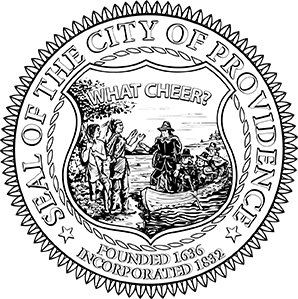The Office of Sustainability has partnered with cities across North America to explore interventions and policies to prevent the release of plastics into the environment. The world’s consumption of plastic products is growing exponentially and our environment cannot sustain the amount of plastic pollution. Between 1964 and 2014, plastic production increased by twenty-fold and according to the World Economic Forum, plastic production is expected to increase 400% by 2050. With one third of single-use disposable plastic products- plastic bags, Styrofoam cups, plastic silverware, you name it- ending up in our environment as litter, our plastic consumption threatens our cities, green spaces, and waterways.
The project called “Beyond the Ban,” sought to co-develop and share model policies and best practices, infrastructure investment opportunities, and blueprints for community engagement that reduce the negative impacts of plastic packaging while promoting sustainable economic development. With a grant awarded by the Urban Sustainability Directors Network’s (USDN) Innovation Fund, the project built on previous work on sustainable consumption, compostable plastics, and community engagement.
Working with UPSTREAM—an organization tackling the environmental problems caused by products and packaging–ten North American cities (San Jose, CA; San Francisco, CA; Providence, RI; New York, NY; Seattle, WA; Santa Monica, CA; Boston, MA; Somerville, MA; Surrey, British Columbia; and Portland, MN) were interviewed to get a broad sense of the challenges and strategies that are underway at the local level. Knowledge from these interviews was aggregated and used to form the agenda for an in-person convening this past December in Providence, RI. Attendees worked through common pain points in municipal plastic pollution reduction, sharing advice based on their own efforts’ successes and shortcomings.
The December convening identified several solutions that fell into the following categories:
- Incentivize behavior to reduce single-use items: During the brainstorm, participants suggested ideas such as targeting consumer behavior, encouraging re-use and focusing on reducing single-use disposables, offering incentives for repairing items, using fees vs. discounts, and exploring creative incentives (e.g. cutting the line at the coffee shop if you bring your own mug). They also noted that bans should not be the focus, but instead an approach that is useful to people’s lifestyles.
- Develop a city, regional, or state network in support of extended producer responsibility (EPR): Participants suggested building a city, state, or regional network to leverage EPR policies, such as an opt-in program for cities in the Northeast or on the West Coast, for example.
- Develop a toolkit of policies and best management practices for plastic pollution and waste elimination: Participants expressed strong interest in knowing about how to weigh the costs and impacts of different waste management policies in the shorter and the longer-term. They suggested developing a hierarchy around different activities and policies a city can pursue based
The meeting also sparked a variety of follow-up efforts across the participating cities. San Francisco went on to draft both a to-go cup fee and a mandatory opt-in straw policy (requiring restaurants to only provide straws upon request). The City of Providence will continue to partner with UPSTREAM and Clean Water Action – Rhode Island to engage and educate the community about plastic pollution and general litter reduction efforts.

